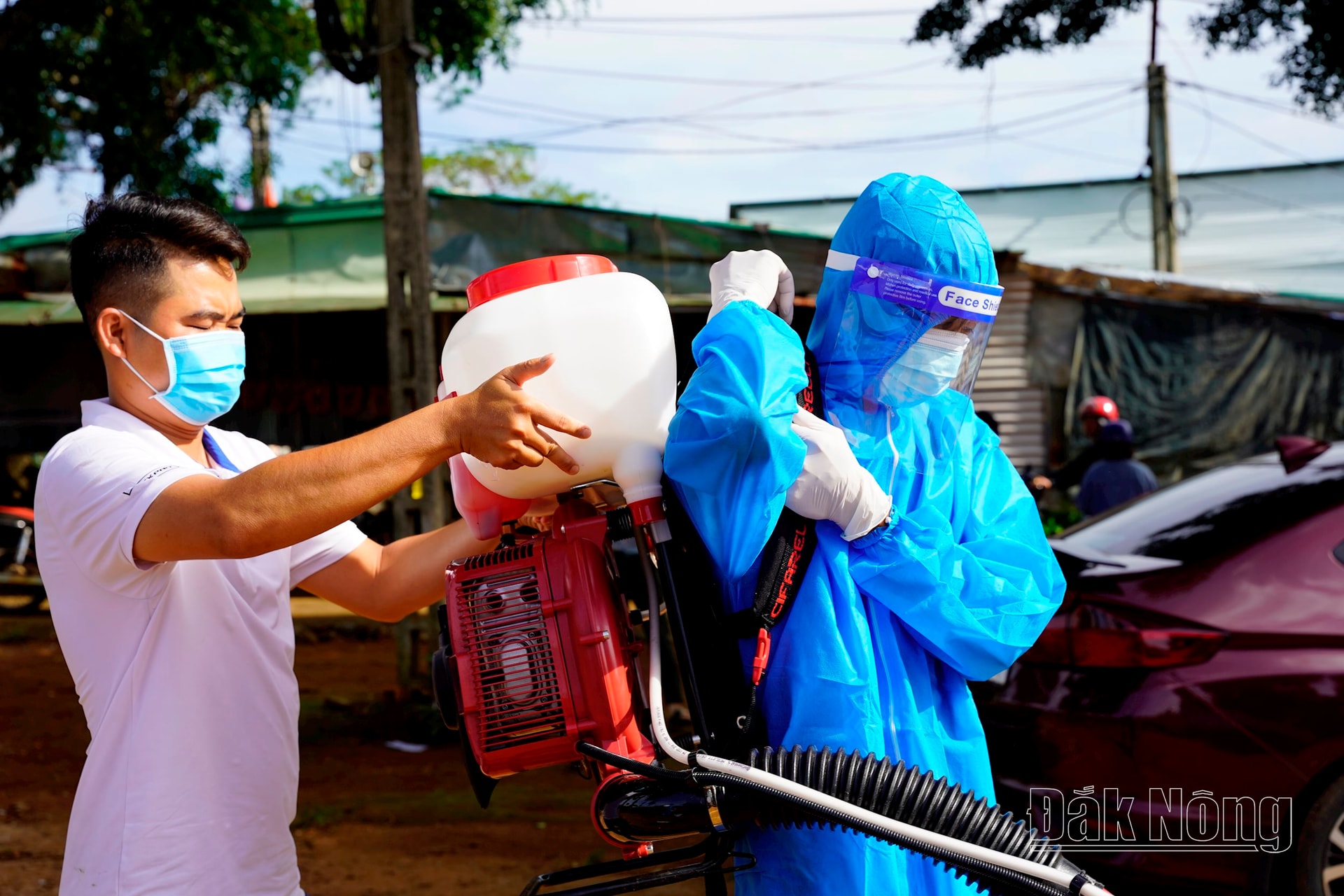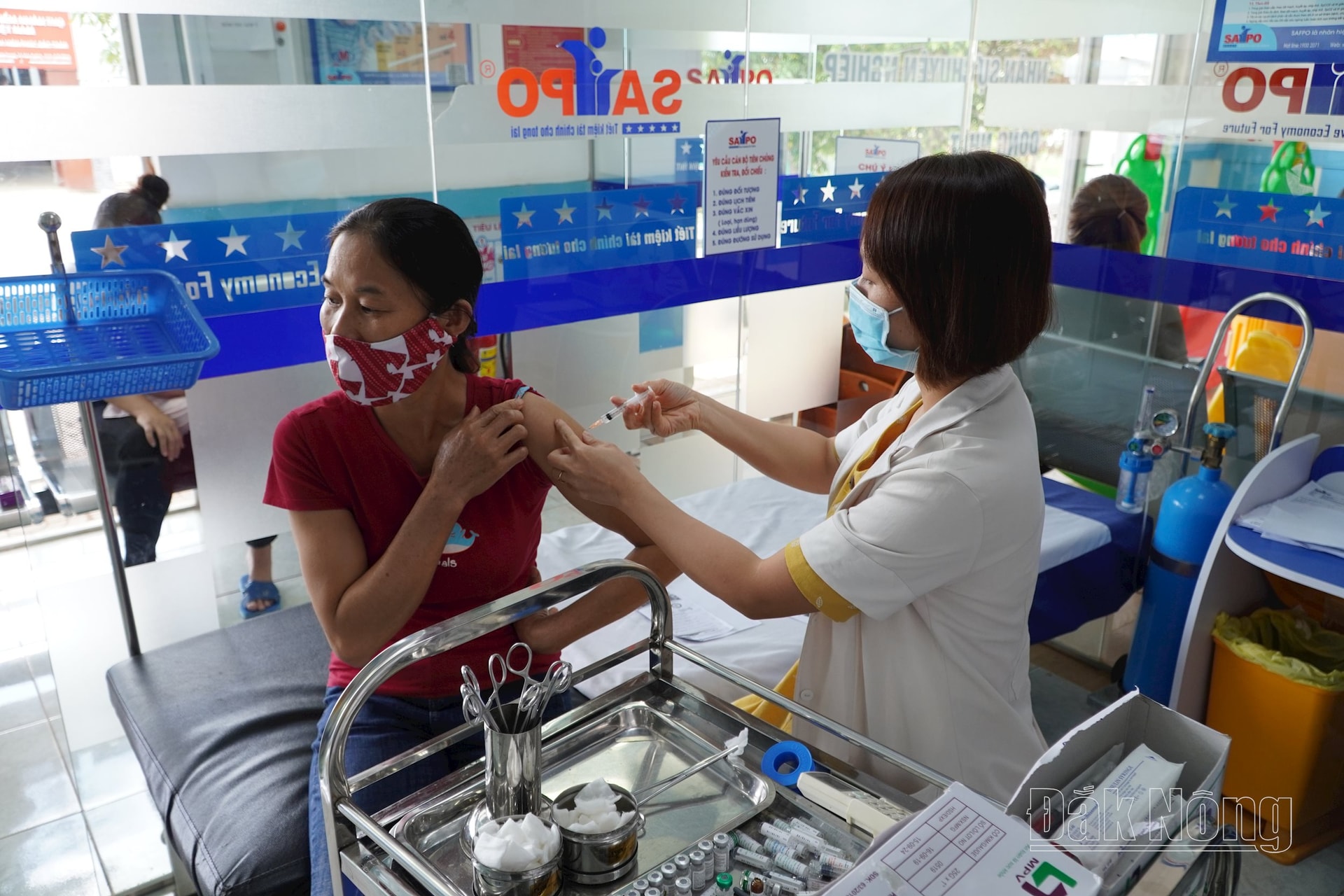Effective epidemic prevention
According to the Dak Nong Provincial Center for Disease Control (CDC), in the past 5 years, Dak Nong has continuously faced complicated epidemics. specific, dengue fever (DF) from 2019 to 2024; measles in 2019; diphtheria in 2020 and the peak of the Covid-19 pandemic in the period of 2020-2022. In 2024 alone, the province recorded 20/44 locally circulating infectious diseases, with 7,056 cases, including 3 deaths.
In 2024, Dak Nong province recorded 5,288 cases of dengue fever in 70/71 communes and wards in 8/8 districts and cities and recorded 1 death. Compared to the same period in 2023, the number of dengue fever cases increased by 3,752 cases, the number of deaths increased by 1 case, and the number of communes with dengue fever cases increased by 4 communes.
According to Dak Nong Provincial Center for Disease Control
In addition, there are still many epidemics circulating in the province such as chickenpox, hand, foot and mouth disease, rabies, etc. with the number of cases being higher each year than the previous year. New strains and pathogens are constantly changing and appearing, so the epidemic trend is difficult to predict. The risk of new epidemics such as monkeypox is always latent because cases have appeared in neighboring localities.
Faced with the unpredictable developments of the epidemic, always posing a risk of outbreak, Dak Nong CDC proactively advised the Provincial People's Committee and the Department of Health to develop a plan to mobilize resources to coordinate in disease prevention and control. The assignment is specific and appropriate, enhancing the responsibility of the heads of agencies, units and localities to ensure proactiveness and flexibility in implementing the "4 on-site" motto, contributing to effective organization of disease prevention and control.

In addition, CDC Dak Nong regularly directs and guides medical facilities and communities on measures to handle outbreaks and prevent infectious diseases at risk of outbreaks. Subordinate units regularly and continuously monitor, closely supervise, and promptly detect cases at border gates and in the community for timely handling, control of the spread, and limit severe cases and deaths. Inter-sectoral coordination to organize monitoring, detection, and management of subjects coming from epidemic areas is emphasized.
In 2024, infectious diseases tend to increase compared to the same period in 2023. Of which, dengue fever is the most complicated, causing many difficulties for the province in organizing disease prevention and control. Foreseeing the risk, from the beginning of the year, the center proactively deployed professional support monitoring activities in dengue fever prevention and control at the groundswell level, thereby gradually preventing the epidemic effectively, especially not allowing many deaths to occur.
High vaccination rate
One of the key tasks that CDC Dak Nong always focuses on is to organize vaccination work well, especially expanded vaccination for children.

Mr. Tran Vinh, Deputy Director of CDC Dak Nong said: With the motto "prevention is better than cure", vaccination for people is always a top priority. Because, if people, especially children, are fully vaccinated with the necessary vaccines, it will create an effective "shield" against epidemics, greatly reducing the pressure on epidemic prevention work.
In 2024, the expanded immunization work encounters many difficulties due to the lack of vaccines, especially the 5-in-1 vaccine. In that context, the unit made efforts to overcome and seek support from all levels and sectors in allocating vaccines, organizing catch-up vaccinations, and catch-up vaccinations for the subjects. As a result, the rate of full vaccination for children under 1 year old reached 88.5%; supplementary tetanus vaccination for pregnant women and women of childbearing age reached 90.7% (1st dose) and 96.6% (2nd dose); catch-up vaccination for children enteringpreschools and primary schools reached 93.1%. The rate of MR vaccination for aged subjects 1-5 years old reached 96.0% and Td vaccination for children aged 7 years old reached 76.3%.
In order to achieve high results in vaccination, Dak Nong CDC has issued documents directing and guiding medical centers in districts and cities to carry out necessary activities, meet people's needs, ensure safety in vaccination, and prevent negligence. Medical facilities have done a good job of managing subjects, injection safety, vaccine preservation, monitoring post-vaccination reactions, and measuring people's satisfaction with expanded immunization services.
During the vaccination process, CDC Dak Nong regularly organizes monitoring and support sessions for medical facilities; inspects and supervises vaccination service activities to grasp the situation and quickly overcome at vaccination service facilities.
Prioritize resources
According to CDC Dak Nong, despite many encouraging results, in 2024, disease prevention and vaccination work will still face certain difficulties. specifically, the total number of infectious disease cases will increase compared to the same period in 2023, especially dengue fever and measles, which will increase and last for a long time.
The management of vaccination targets for children and pregnant women is not strict, and still misses out subjects in the community. Health education and communication work and vaccination services outside the vaccination program still have many limitations.

People's understanding is still low, they often have the habit of storing water for daily activities, growing vegetables, watering ornamental plants... but the water containers are not covered, which creates favorable conditions for mosquitoes to breed and develop, causing the spread of dengue fever. The awareness of a large number of people in proactively implementing disease prevention and control measures at home and in the community is not good, even causing difficulties and hindering the disease prevention activities of specialized agencies. Local authorities have not been really drastic, so they have not been able to enforce sanctions for violations in disease prevention and control.
There is a lack of vaccines in the expanded immunization program. People's understanding of the benefits of vaccination is limited. Many people migrate freely, live in isolation, and have difficulty traveling, so management and inviting people to get vaccinated still leaves many people behind.
According to Mr. Tran Vinh, Deputy Director of CDC Dak Nong, in 2025, CDC Dak Nong will continue to prioritize resources for the prevention and control of infectious diseases and expanded immunization, so that these two areas can complement and support each other effectively, improving the quality of health care for the people.
Source: https://baodaknong.vn/cdc-dak-nong-chu-dong-phong-dich-nang-hieu-qua-tiem-chung-239213.html








































































































Comment (0)